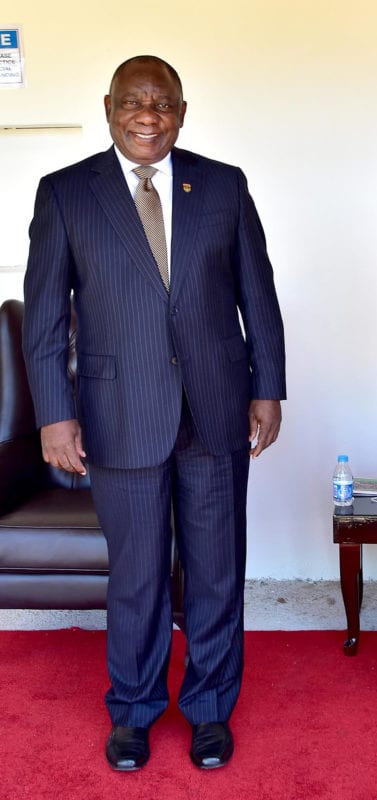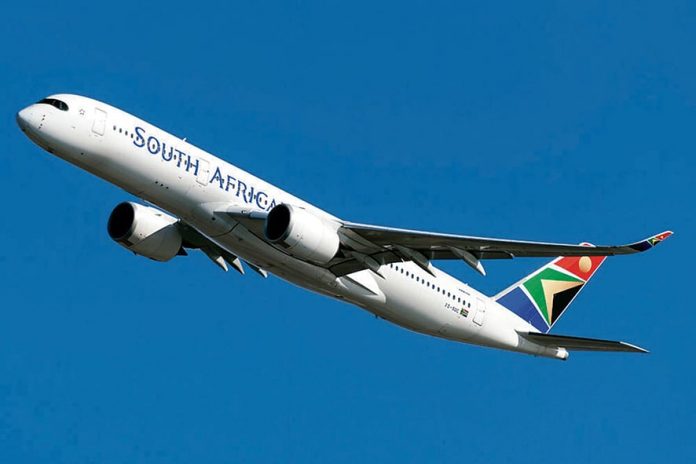Johannesburg – President Cyril Ramaphosa scored two major victories on his reform agenda this week ahead of his trip to the Group of Seven (G7) gathering in London, England.
The grouping is an inter-governmental political forum consisting of Canada, France, Germany, Italy, Japan, the UK and the US.
His administration drew praise from the business community when it moved to tackle the energy crisis by lifting the threshold for companies to produce their own electricity without a licence to 100-megawatts (MW), a decision is largely seen as another indication the country is on course to decentralised and decarbonised power generation.
However, Ramaphosa’s administration also drew political flack in some quarters after it announced the partial privatisation of troubled national carrier SAA, a move largely welcomed by the business community.
Public Enterprises Minister Pravin Gordhan on Friday announced the sale of 51% of SAA to Takatso Consortium, with the government retaining a 49% stake.
Also read: ANC’s Lekganyane allegedly assaulted and grabbed private parts of fellow party member
The Takatso consortium comprises Joburg based Global Airways, which owns the recently launched domestic airline Lift, and private-equity firm Harith General Partners.
The key role players in the deal include Lift co-founder Gidon Novick and the politically connected Harith chairman Jabu Moleketi, the former deputy finance minister and former Public Investment Corporation chairman.
Cas Coovadia, the CEO of Business Unity South Africa (Busa), said partnerships between the private sector and government in non-strategic state-owned entities (SOEs) were the appropriate way to go.

“This enables injection of private sector capital and expertise into the operations of such SOEs. We also remain clear that the government must continue to review its SOEs with a view to rationalisation to ensure fewer SOEs [but] that are efficient and sustainable.
The closure of SOEs that serve no social or economic purpose must also be considered,” he said. SAA was split from Transnet in 2006, it’s then-parent company, to operate as an independent airline.
The embattled airline, which has just emerged from a business rescue process, owns low-cost domestic airline Mango and has established links with Airlink and South African Express. Hamstrung by poor leadership and corruption, the airline has been an albatross on the fiscus and last made a profit in 2011.
It has been surviving on taxpayer bailouts, the most recent being R10-billion to fund its business rescue process.
Gordhan said Takatso would inject more than R3-billion into the deal. Black Business Council president Sandile Zungu said it would be good to see SAA back in the air and that BEE ownership was an integral part of the new SAA ownership structure.
“We are grateful that the government has seen it fit to see empowerment ownership at a high level. The business model itself; we are not privy to.
Have you read: U-turn in Mkhize Digital Vibes tender scandal
The commitment towards pilot training is very encouraging. The airline industry is a very challenging industry, but I believe that the new owners went with their eyes wide open,” he said. He added that the organisation would like to see SOEs being managed more efficiently.
“In essence, there is a role for a state in the economy, but based on the precedent, the state is not a good owner and manager of companies. What is happening at Denel is sad.”
While the move to privatise SAA drew praise from captains of industry, the country’s political establishment was sceptical.
The DA said it looked like the deal was rushed and that on the face of it, it would not unburden the fiscus.
The IFP welcomed the deal but called for more details to be made public.
Busa also commended the decision to make it easier for private players to contribute to the national grid.
South Africa’s economy has experienced rolling blackouts for more than a decade, hurting key sectors.

Media reports have suggested that large companies, mines and farms have 5 000MW in pent-up projects, which could be released if licensing requirements are lifted.
Ntombifuthi Ntuli, the CEO of the South African Wind Energy Association, said the move to lift the threshold of companies to produce their own electricity would allow intensive energy users (IEU), who make up a significant portion of the South African GDP, to establish new generation capacity and stimulate the economy.
“Renewable energy project developers have a number of projects that have gone through all development- phase permitting requirements and are shovel ready, so we can confidently say that there is sufficient capacity in the industry to meet demand from intensive energy users,” said Ntuli, referring to South Africa’s IEUs, which include mining and industrial enterprises, which are estimated to collectively consume about 40% of South Africa’s electrical energy.
Also read: Friends & Foes: Gupta extradition to give SA closure
Follow @SundayWorldZA on Twitter and @sundayworldza on Instagram, or like our Facebook Page, Sunday World, by clicking here for the latest breaking news in South Africa. To Subscribe to Sunday World, click here.
Sunday World



